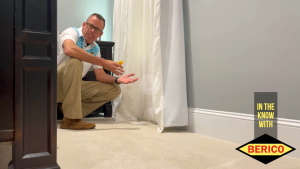What is the Most Common Part to Fail on an AC Unit?
 To the average homeowner, the operation of an air conditioning unit is a bit of a mystery. These are complicated systems, and many people don’t understand how they work. That’s fine, of course – you aren’t in the HVAC repair business and your responsibility is simply to bring in someone who is qualified to care for the system.
To the average homeowner, the operation of an air conditioning unit is a bit of a mystery. These are complicated systems, and many people don’t understand how they work. That’s fine, of course – you aren’t in the HVAC repair business and your responsibility is simply to bring in someone who is qualified to care for the system.
In this article, we’ll get into a bit of HVAC maintenance by talking about common parts to fail on an AC unit. This information won’t make you an expert overnight, but it will help you understand what might be wrong with your system before you call for help.
Start with a Capacitor
It’s likely that this is the single most common issue to come up with an air conditioning unit. Fortunately, the news here isn’t too bad – in many cases, a capacitor can be replaced for a relatively modest cost. This part has the job of getting the electric motors to start and run within the system. If it goes bad and can’t get that job done, your air conditioner won’t be able to produce the cold air you are expecting to feel when it comes on.
Looking at the Blower Motor
This is a part that will be costlier to replace if it does go out. The blower moves the air around your home and allows the air conditioner to successfully distribute the cooler air that has been created. A blower going out isn’t necessarily as likely as a capacitor, but it can cost more to have it replaced when it does occur.
Low Refrigerant
This point is stretching the definition of a “part” a little bit, as it’s not something that you would think of as equipment necessarily. However, your air conditioner isn’t going to work without sufficient refrigerant in the system, so if it is getting low, this needs to be addressed. Often, the refrigerant will wind up low as the result of a tiny leak that drains it out of the line over time. The cost of addressing this problem will depend on whether there is a leak in the system, the coil, or in a valve within the unit.
Clogged Drain Line
Again here, this is a point that isn’t necessarily a part, but it is an important factor to understand. When your air conditioner runs, moisture is pulled out of the air and drained outside. If the drain line that takes the moisture outside becomes clogged for some reason, the water will back up and eventually trigger the safety switch to shut things down. Solving this problem comes down to clearing up the line and letting the water flow again.
Whether you are in need of an AC tune-up or you have an urgent repair that needs to be completed, Berico is the easy choice for the job. Take a moment today to call the team at Berico to learn more about the services that are available or to get your HVAC repair scheduled.

